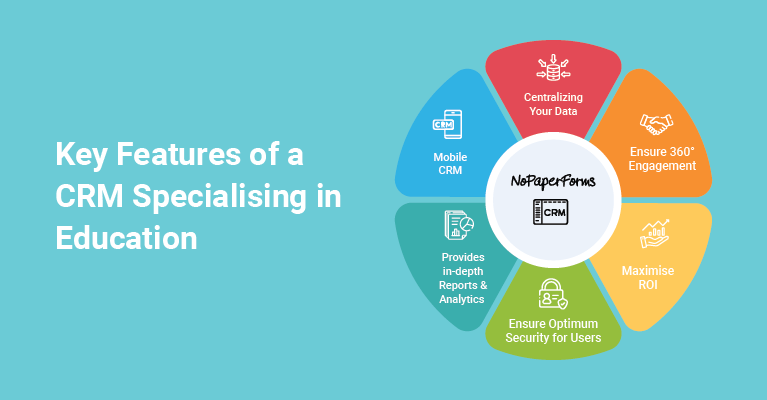The Top CRM Capabilities to Enhance Maximizing Your Company's Operational Efficiency
In today's rapid corporate environment, efficient customer client management is fundamental to success. Companies are constantly searching for ways to enhance their effectiveness and enhance their interactions with clients. One of the most effective tools in achieving this objective is a robust customer relationship management system. By taking advantage of the appropriate features, companies can simplify their processes, boost customer satisfaction, and ultimately propel growth.
The secret to optimizing the benefits of a CRM is in grasping its features. From automated systems that cut down on manual tasks to data analysis tools that provide greater insights into customer behavior, the right customer relationship management system can revolutionize how businesses manage their operations. In this article, we will discuss the leading ten CRM features that can significantly boost your company efficiency and help you build improved relationships with your clients. Regardless of whether you are a small startup or an well-established enterprise, these features are crucial for remaining competitive in today’s market.
First. Streamlined Contact Management
Effective contact management is a cornerstone of any effective customer relationship management system. A structured database allows businesses to easily access and manage customer information, leading to better communication and relationship-building. With improved contact management, users can store essential details such as names, phone numbers, emails, and interaction history in one centralized place. This removes the need for disorganized spreadsheets and provides a single source of truth for all customer data.
Advanced CRM systems offer features like labeling and categorizing contacts, which make it simpler to segment customers based on different criteria. This specific approach allows businesses to adapt their marketing efforts and communications according to particular customer groups. By leveraging these capabilities, companies can enhance engagement and foster loyalty, as they are able to send tailored messages that connect with each person's needs and preferences.
Additionally, integrations with various tools and platforms can further boost contact management. Whether it’s integrating with email marketing software, accounting systems, or even social media, these integrations simplify the workflow and ensure that all customer interactions are captured and made effective efficiently. As a result, businesses can make smart decisions and enhance their customer strategies, ultimately boosting overall efficiency.
2. Automated Sales Techniques
Establishing automated sales sales processes is vital for enhancing effectiveness in business operations. Employing a robust CRM tool, sales teams can simplify common tasks such as lead tracking, subsequent communications, and data reporting. This not only does save time and also ensures that no potential sales opportunities are missed, allowing teams to focus on developing relationships and closing deals.
An important benefit of automation lies in the consistency it brings to sales activities. Automated processes can schedule calls, send emails, and manage follow-up reminders, guaranteeing that customers receive timely communication. This dependability in communication helps in nurturing leads effectively and increases the likelihood of transforming leads into loyal clients. Additionally, by streamlining recurring tasks, sales representatives can concentrate to more strategic activities that have a direct impact on revenue.
Additionally, including analytics into sales automation offers crucial insights into performance indicators. Organizations can easily track the rate of conversion, spot bottlenecks in the sales process, and make informed decisions to improve their strategies. This feature enables teams to respond rapidly to shifts in the market and buyer behaviors, further enhancing overall business efficiency and sales results.
Three. Advanced Analytics and Reporting Techniques
Sophisticated data analysis and reporting are vital customer client management aspects that empower businesses to make informed decisions based on data-driven insights. By utilizing the power of data collection, CRM systems can provide detailed insights about customer interactions, sales trends, and market dynamics. This enables organizations to comprehend their customers more effectively, predict needs, and tailor their strategies to meet those needs.
With extensive reporting features, businesses can track key performance indicators and analyze the success of their marketing efforts. Customizable dashboards and reports allow users to represent data in meaningful ways, making it simpler to identify patterns and opportunities for improvement. These insights not only aid in measuring success but also inform future strategies for customer engagement and retention.
In addition, predictive analytics, a subset of advanced analytics, enables organizations to forecast future trends and behaviors based on historical data. This forward-looking approach enables businesses to not only react to customer demands. By leveraging these insights, companies can improve their customer relationship management system aspects, resulting in improved efficiency and eventually, greater revenue growth.
4. Enhanced Customer Communication
Strong communication is essential for developing effective relationships with customers, and a powerful customer relationship management system features tools that support smooth interaction. With cohesive messaging systems, electronic communications, and live chat options, businesses can connect with their customers in the moment, addressing concerns and providing support promptly. This instant communication helps to cultivate trust and encourages customer loyalty.
Furthermore, CRM systems often feature functions that enable tailored communication based on customer data and preferences. By monitoring customer interactions and gathering information about their preferences and behavior, businesses can tailor their messages, ensuring that customers receive appropriate offers and information. This custom approach not only improves the customer experience but also improves the likelihood of repeat business.
Moreover, CRM systems can simplify communication, allowing businesses to deliver targeted follow-ups, reminders, and promotional messages without manual effort. This automation ensures that no customer is overlooked and that communications are on time and reliable. By optimizing communication processes, businesses can save resources and efficiency while enhancing customer satisfaction, ultimately leading to better business efficiency.
